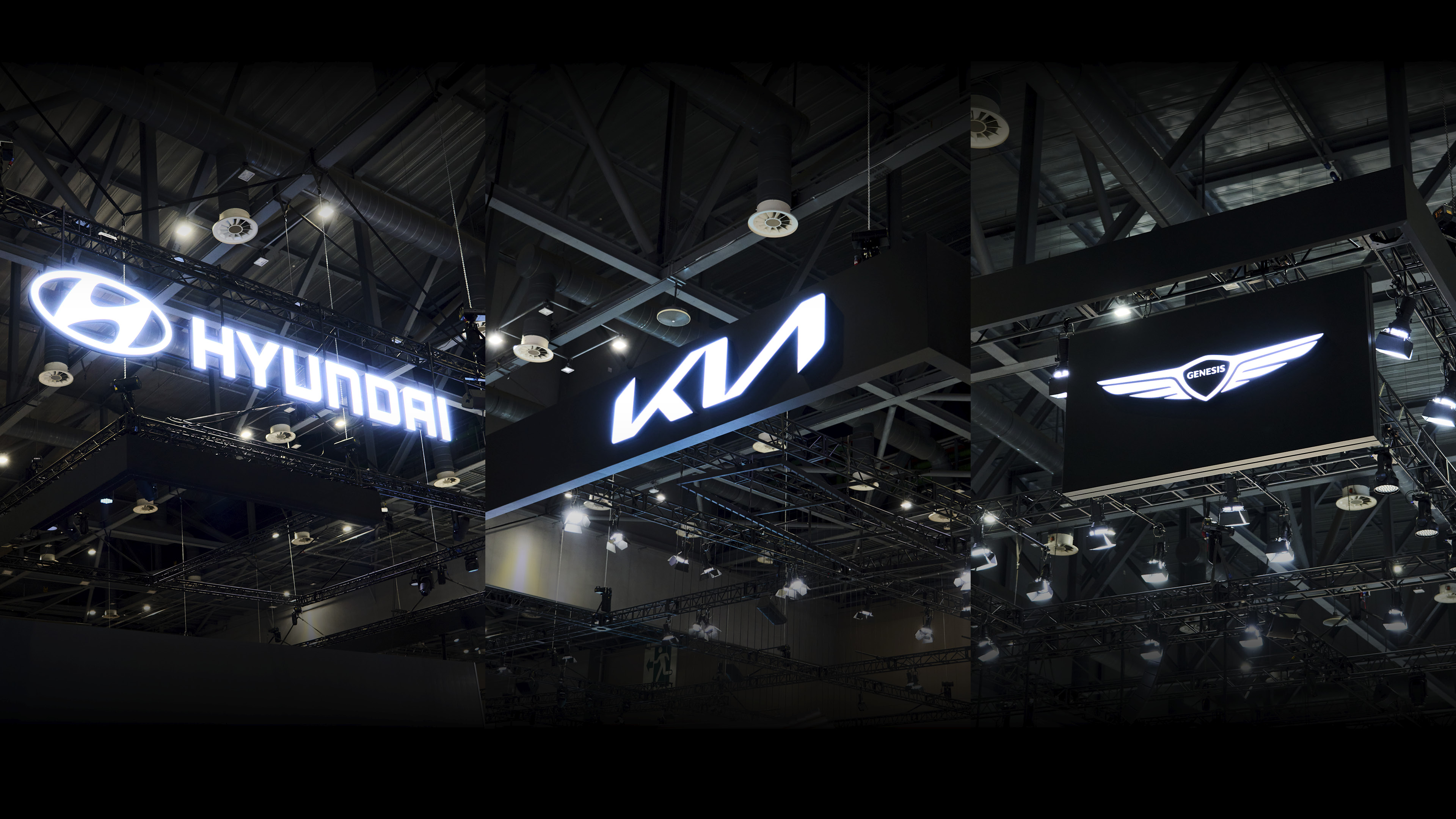
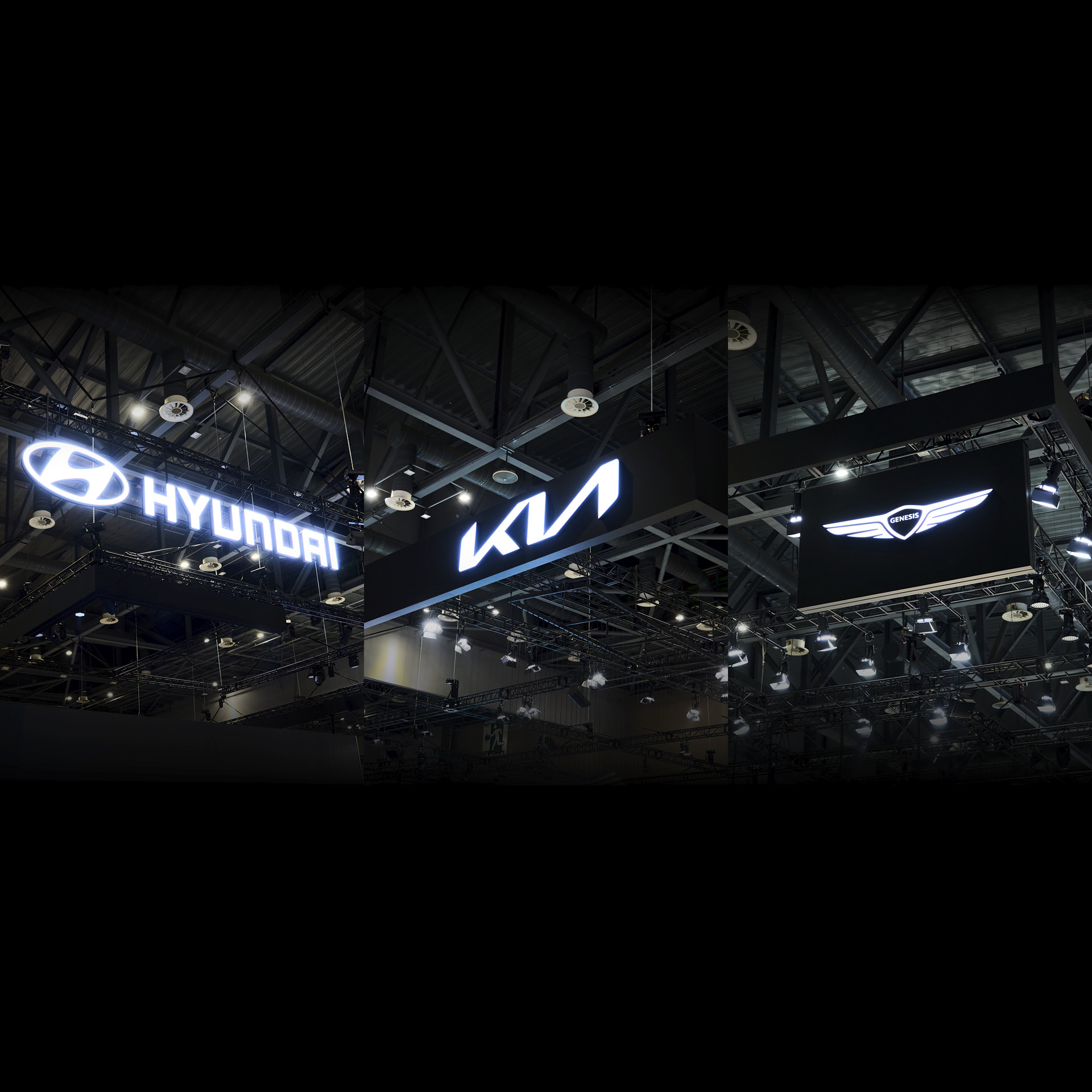


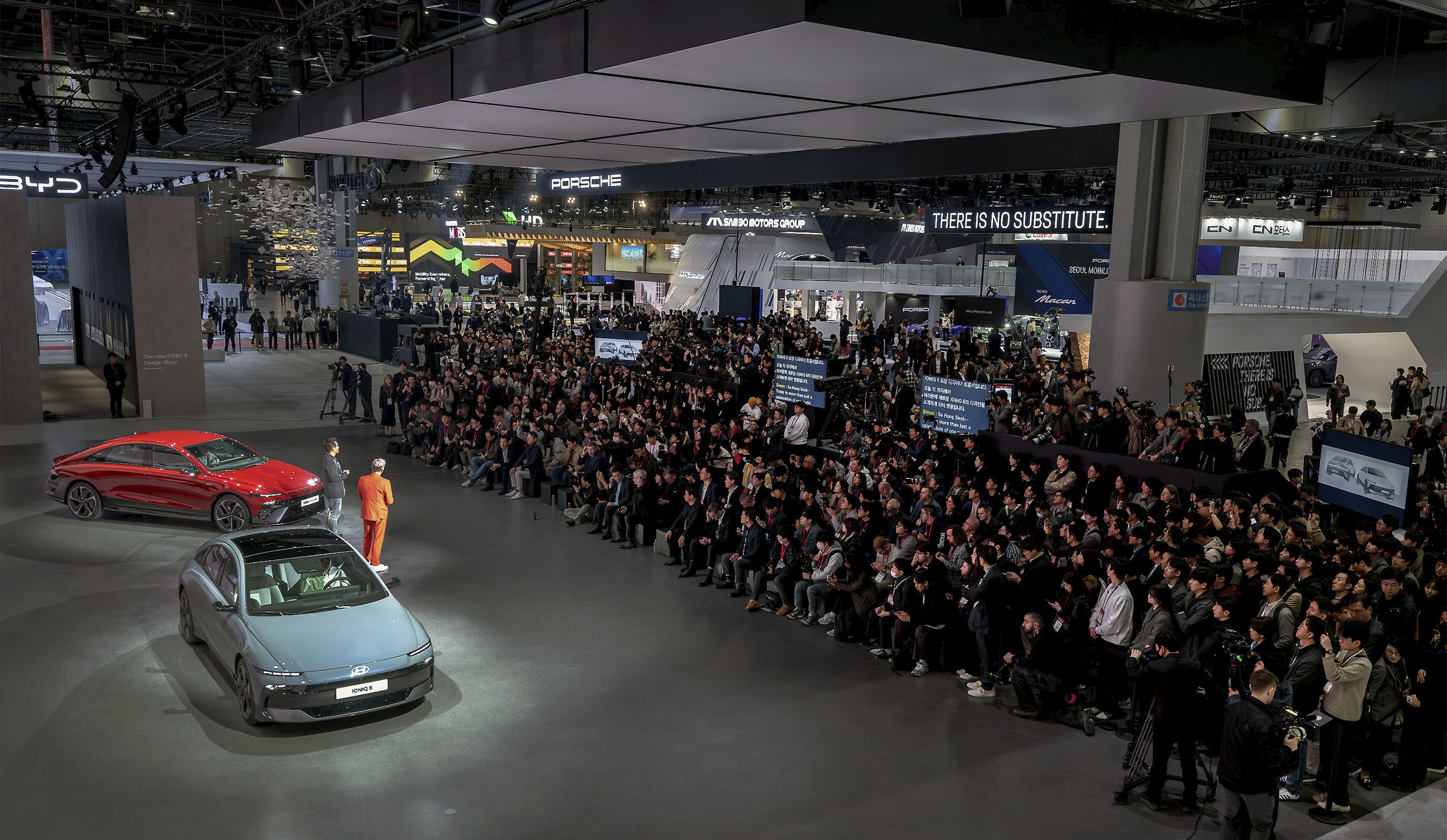
South Korea’s biggest automotive showcase—the 2025 Seoul Mobility Show—has kicked off at KINTEX in Goyang, Gyeonggi Province. This year’s theme, ‘Mobility, Everywhere,’ emphasizes how future mobility is becoming more accessible in every environment, highlighting the convergence of technologies like autonomous driving, AI, and robotics.
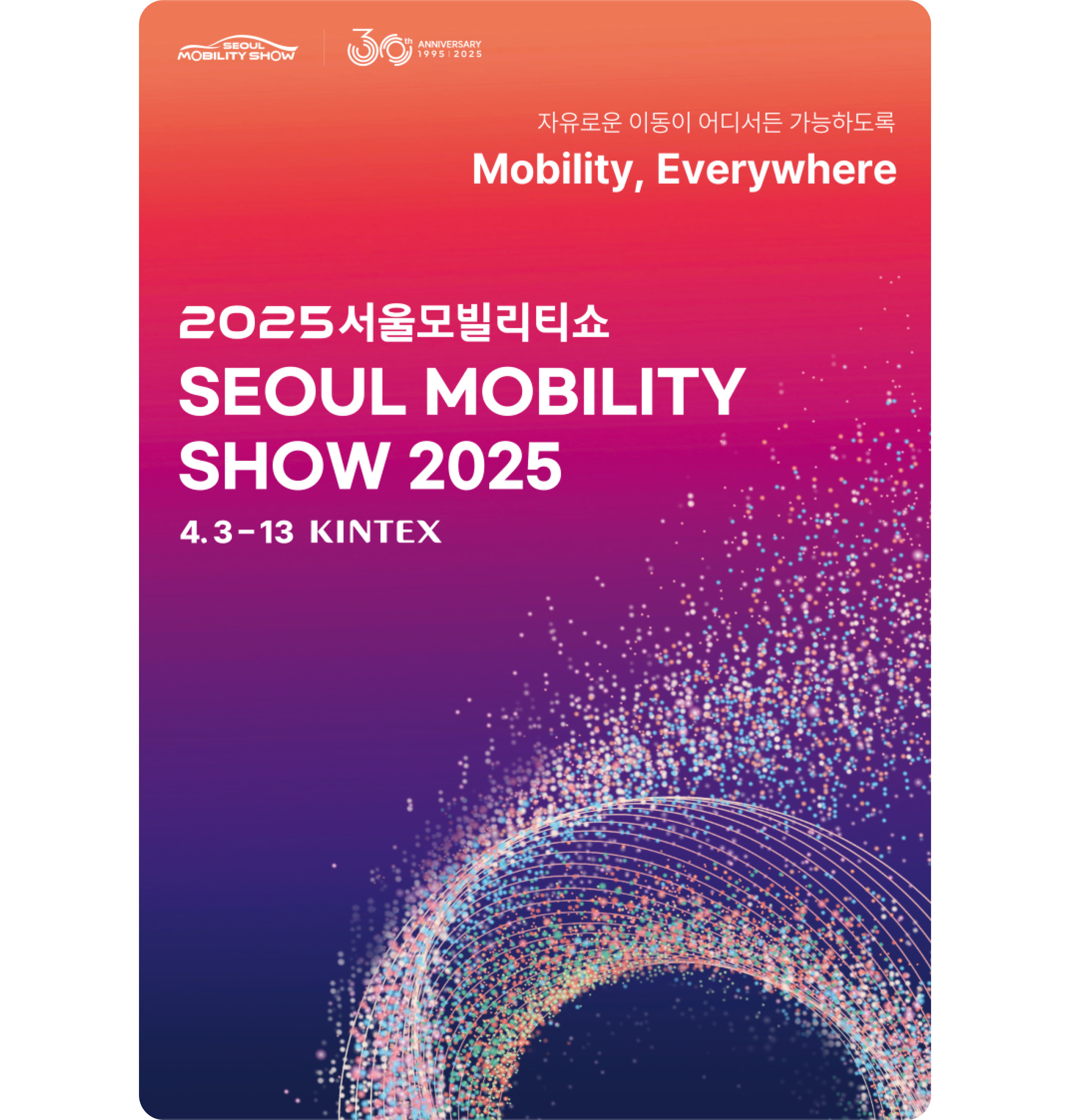
Hyundai Motor Group, comprising Hyundai, Kia, and Genesis, took center stage at the show with major new production vehicles, concept cars, and interactive exhibits. Let’s take a closer look at the highlights.
Occupying the show’s largest display area— about 28,000 square feet—Hyundai Motor showcased two overarching themes: its hydrogen vision and electrification. Headlining the space were world debuts of two new models: The All-New NEXO and The New IONIQ 6, backed by immersive displays and hands-on exhibits that made the brand’s electrification message fun and accessible.
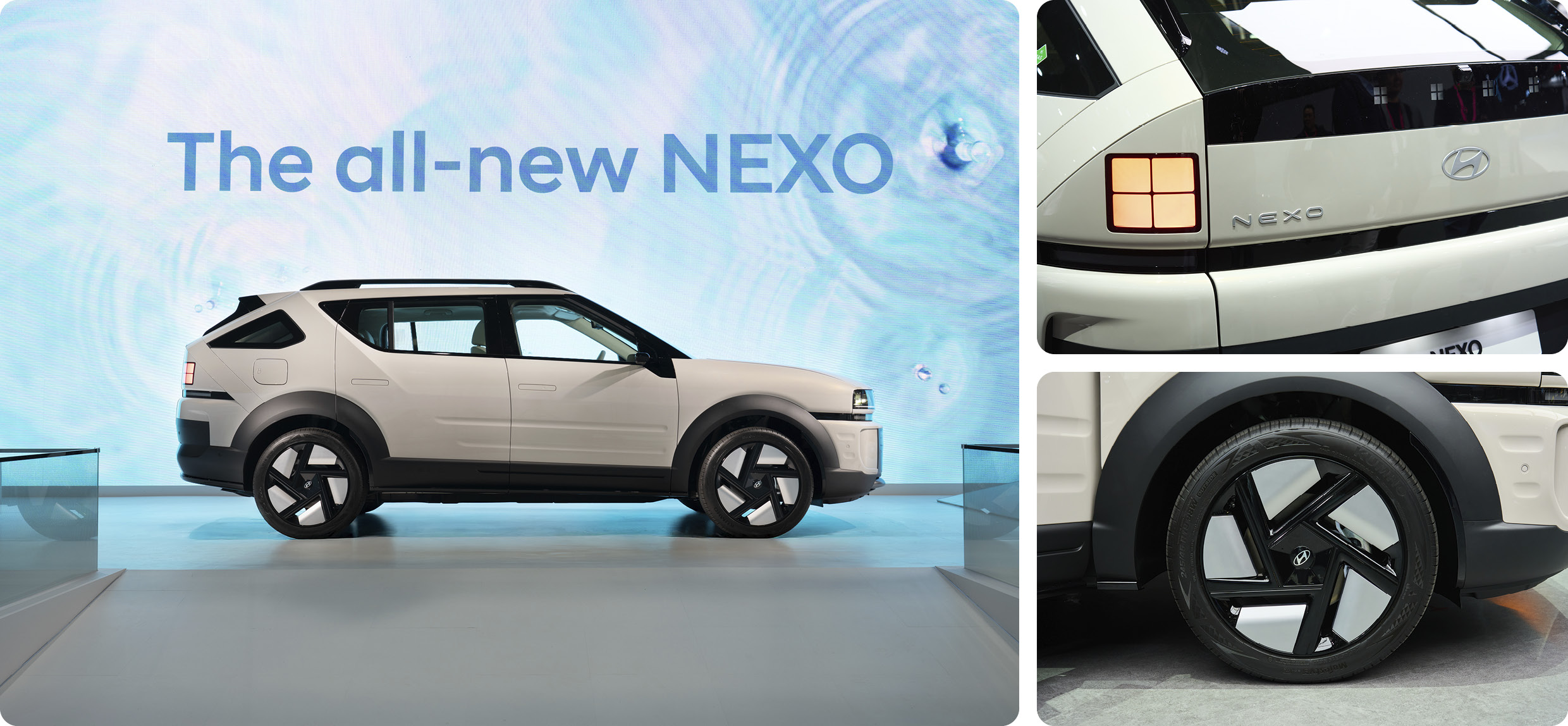
The All-New NEXO, Hyundai’s updated hydrogen fuel cell SUV, stole the spotlight. It’s the production version of the INSTER concept shown last October and marks the NEXO’s first full redesign in seven years. With Hyundai’s new ‘Art of Steel’ design language, the vehicle fuses a rugged SUV presence with futuristic hydrogen-powered styling.
Technically, the model boasts Hyundai’s new 2-stage motor system featuring dual inverters, which optimize output depending on driving conditions for greater efficiency. Additional upgrades include V2L support and a 100W USB-C charging port. A new real-time hydrogen route planner integrates data from South Korea’s 212 hydrogen stations, minimizing charging anxiety. The result? A vehicle that blends Hyundai’s electrification prowess with the practical efficiencies of hydrogen mobility.
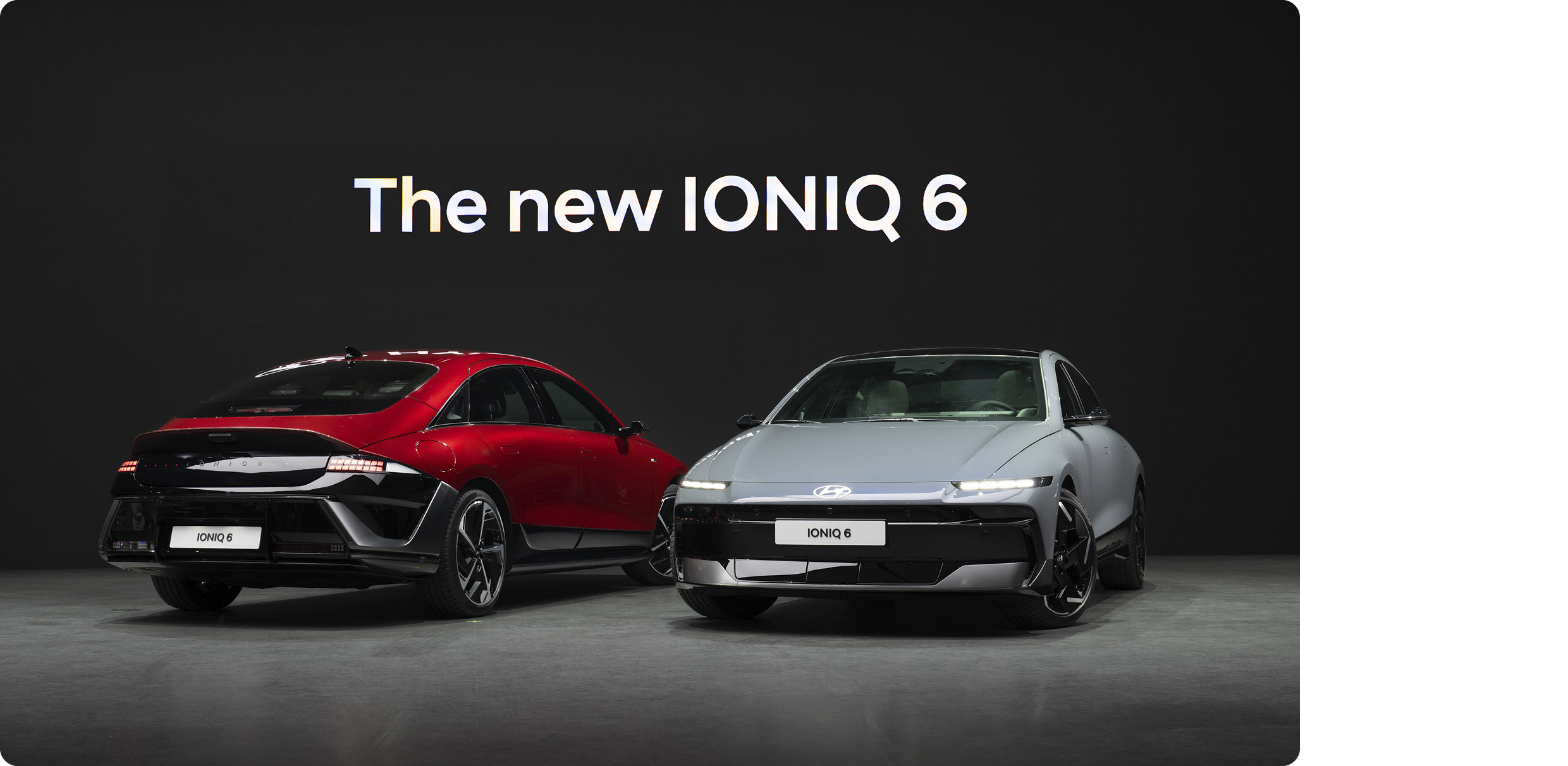
The New IONIQ 6—along with its sportier IONIQ 6 N Line variant—also made their global debut. As a facelift of the original 2022 model, the New IONIQ 6 features an evolved version of the ‘Electrified Streamliner’ design theme, now called ‘Pure Flow, Refined.’ Sleeker visuals maintain aerodynamic performance, while the cabin gets updated with a more user-friendly center console layout.
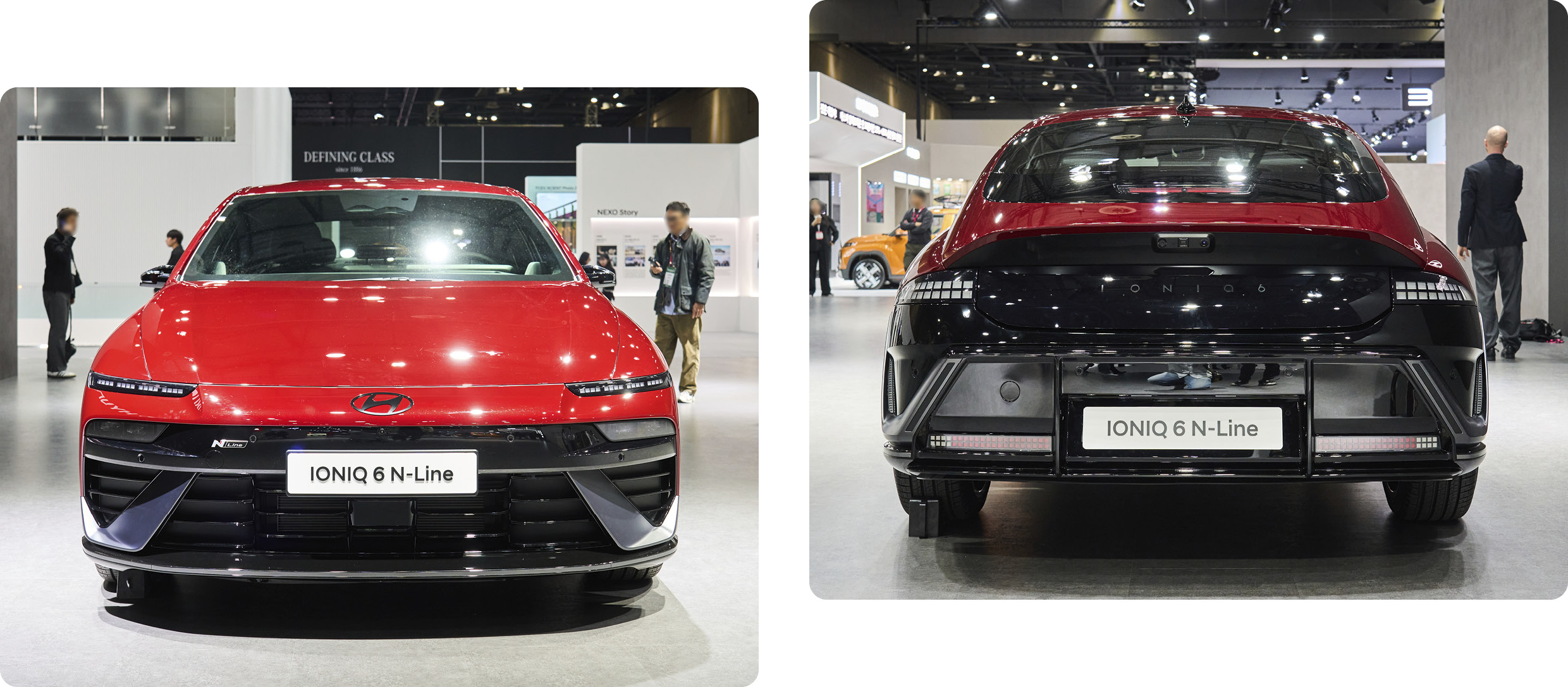
The IONIQ 6 N Line introduces design DNA from Hyundai’s rolling lab RN22e, with wing-inspired bumper garnishes and aggressively contoured side sills. The company even teased the upcoming IONIQ 6 N, promising a full-blown high-performance electric sedan.
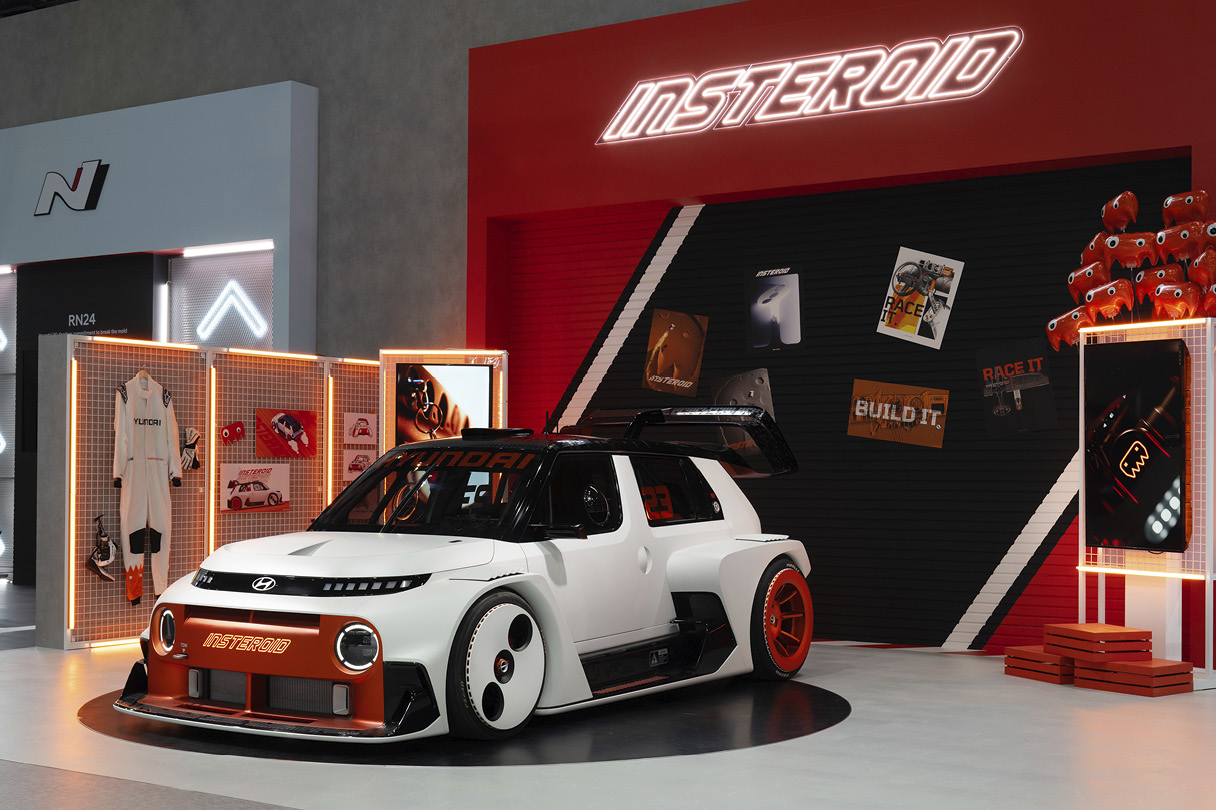
On March 31, Hyundai unveiled the Insteroid, a show car that garnered significant attention from visitors. Based on the compact electric SUV Casper Electric - Inster in export markets, - the Insteroid features a unique design inspired by video games, incorporating various playful elements. Hyundai aims to showcase not only the potential of the Inster but also its commitment to leading a new era of electrified mobility through creative and innovative challenges.

Additionally, Hyundai's exhibition hall was designed to emphasize the importance of sustainability. The 'Water Drop' installation visualized the flow of water, while the 'Air Flow' display represented the movement of air. These installations symbolized the natural systems of water and energy, conveying the message of ecological sustainability. At the rear of the exhibition hall, the 'H2 Zone' focused on water-themed narratives, and the 'EV Zone' offered various electrification experiences, providing visitors with diverse interactive opportunities.
Kia's exhibition hall introduced the theme 'Innovative Mobility Life provided by Kia.' This allowed visitors to directly experience Kia's new models and the forthcoming changes in mobility paradigms.
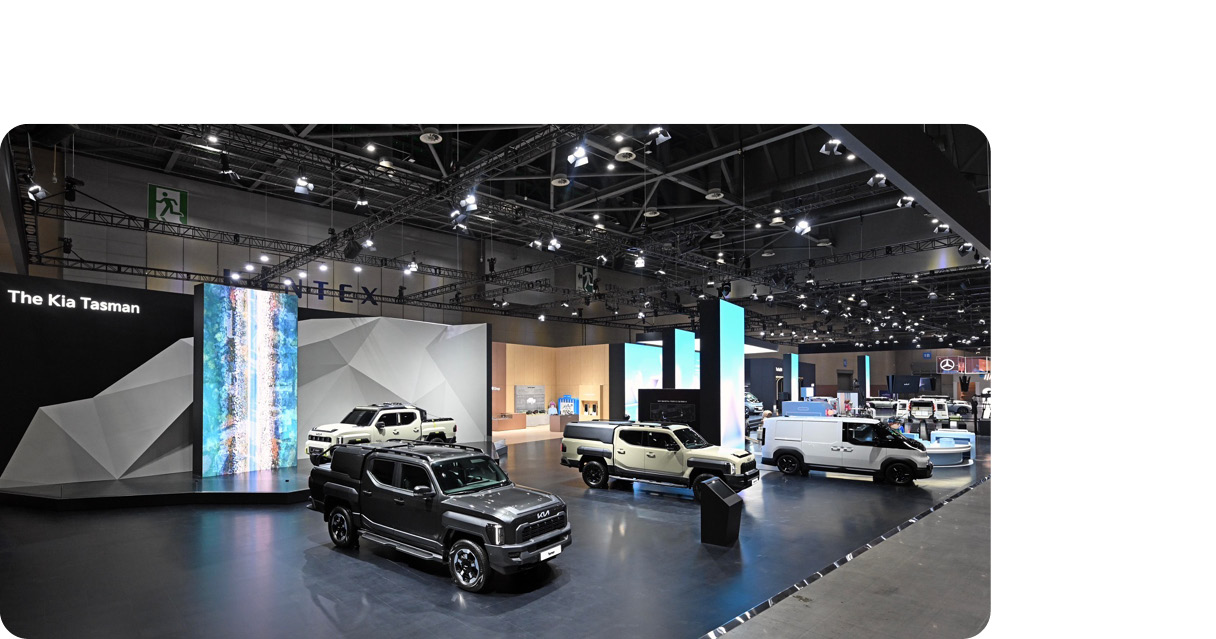
The core of Kia's exhibition was the PV5 and Tasman models. The 'PV5 Zone' prominently displayed the PV5 lineup, including Passenger, Cargo, and WAV (Wheelchair Accessible Vehicle) variants. This showcased the characteristics of PBVs (Purpose Built Vehicles), offering various vehicle forms tailored to individual preferences and purposes.
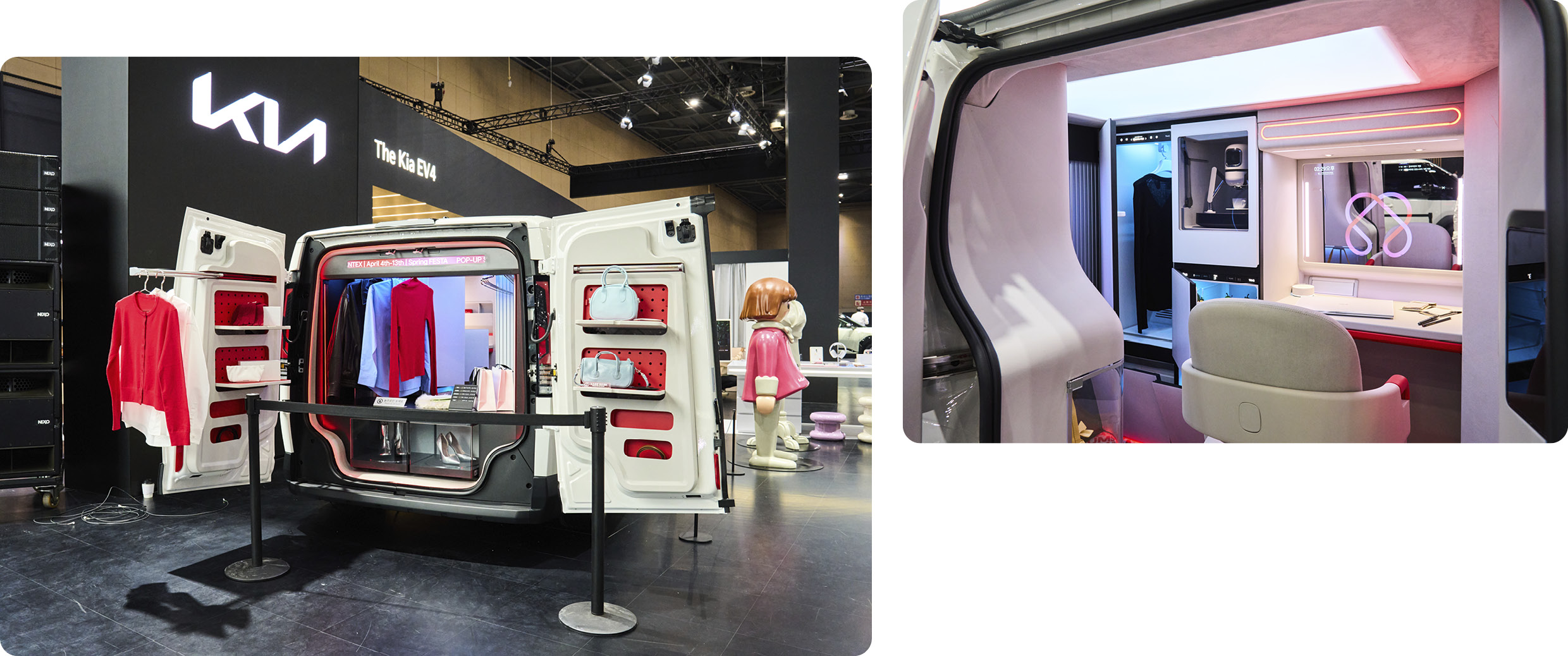
Kia went beyond mere display by revealing various methods to enhance the spatial utility of the PV5. In collaboration with LG Electronics, two 'PV5 Spielraum' concept cars were introduced. One of them, the 'Spielraum Studio,' is a PV5-based mobile office designed for solo entrepreneurs who require a workspace and storage area regardless of location. It features AI-powered home appliances like a modular clothing care system, smart mirror, and coffee machine, all tailored to fit the PV5's interior space.
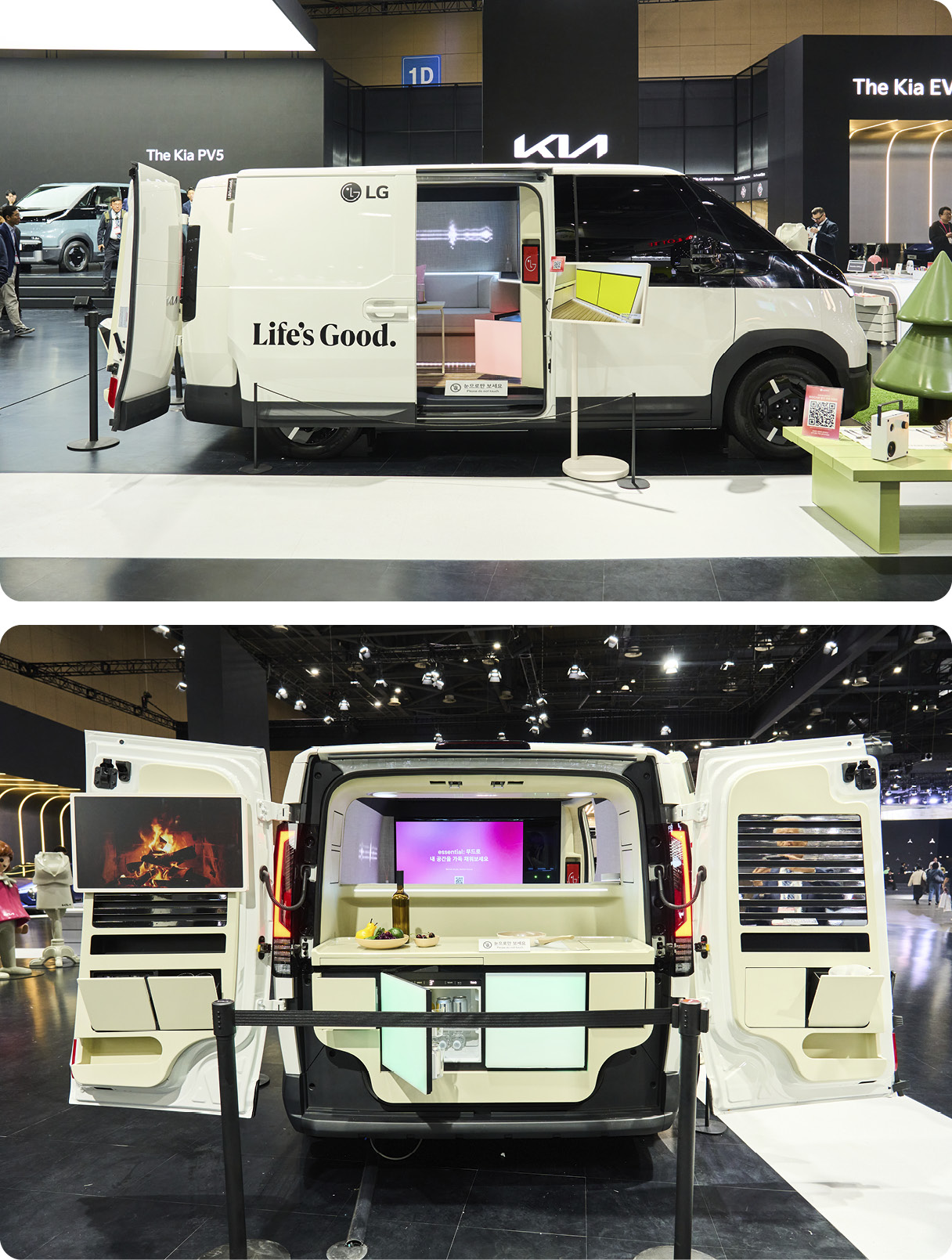
The 'Spielraum Glow Cabin' targets the growing demand for 'car picnics' (picnics enjoyed in a car). It is equipped with appliances suitable for picnics and camping, such as a refrigerator, microwave oven, and wine cellar. Additionally, all appliance doors feature mood-up panels that allow users to change LED colors according to their preferences, creating a distinctive atmosphere.
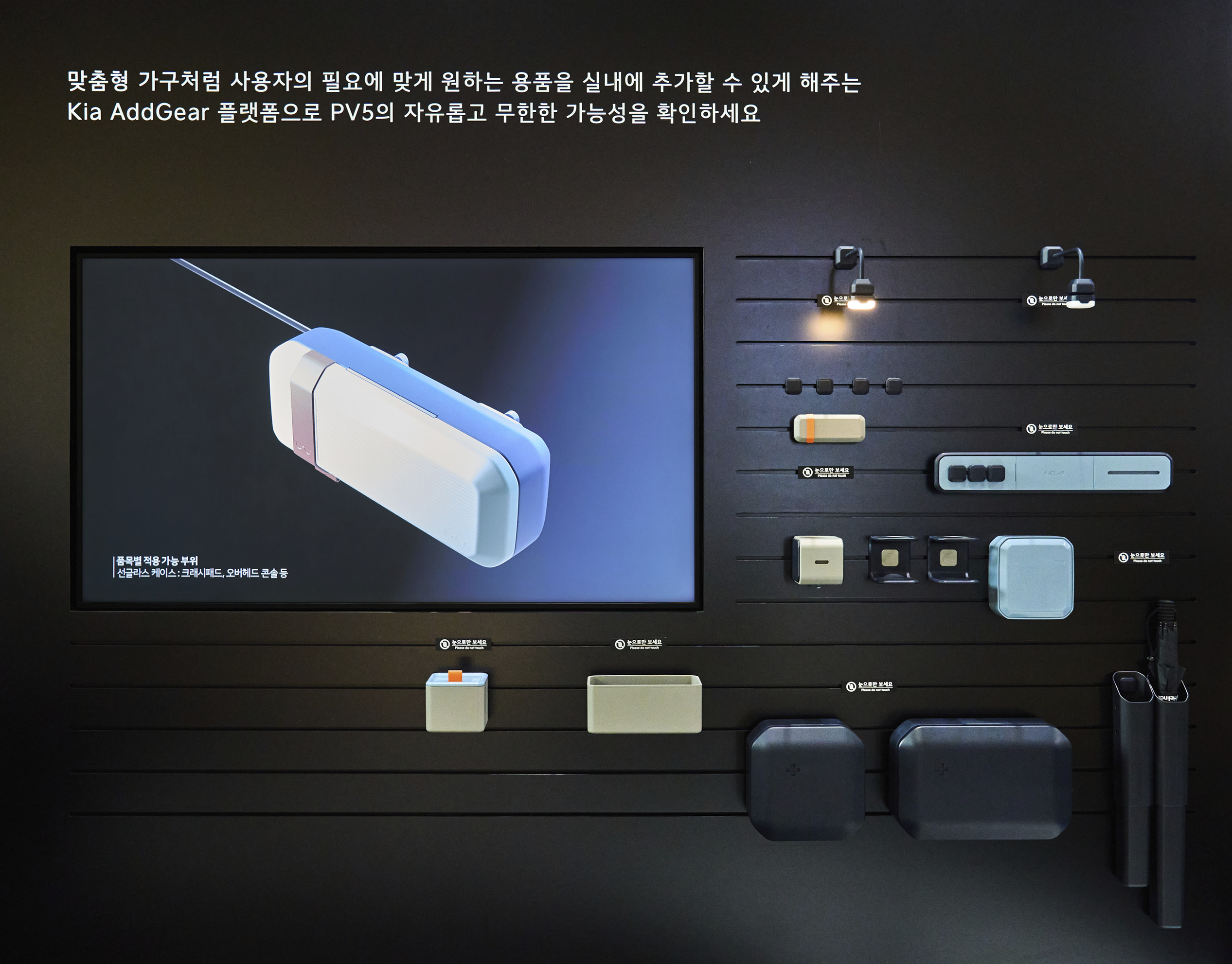
In one section of the booth, components of 'Kia AddGear' were displayed. Kia AddGear is a platform that enables customers to attach desired items inside the PV5 based on their preferences or purposes. It is modularized to allow the installation of various accessories for business or leisure activities, such as camping. Visitors to the exhibition showed interest in the diverse products and installation examples.

At the center of the exhibition hall, Kia collaborated with global toy brand Playmobil to create 'PV5 Town.' Through Playmobil characters representing mobility-challenged individuals and delivery workers, along with various sculptures, the exhibition intuitively conveyed the value of free movement pursued by the WAV model and the optimal transportation solutions offered by the Cargo model.
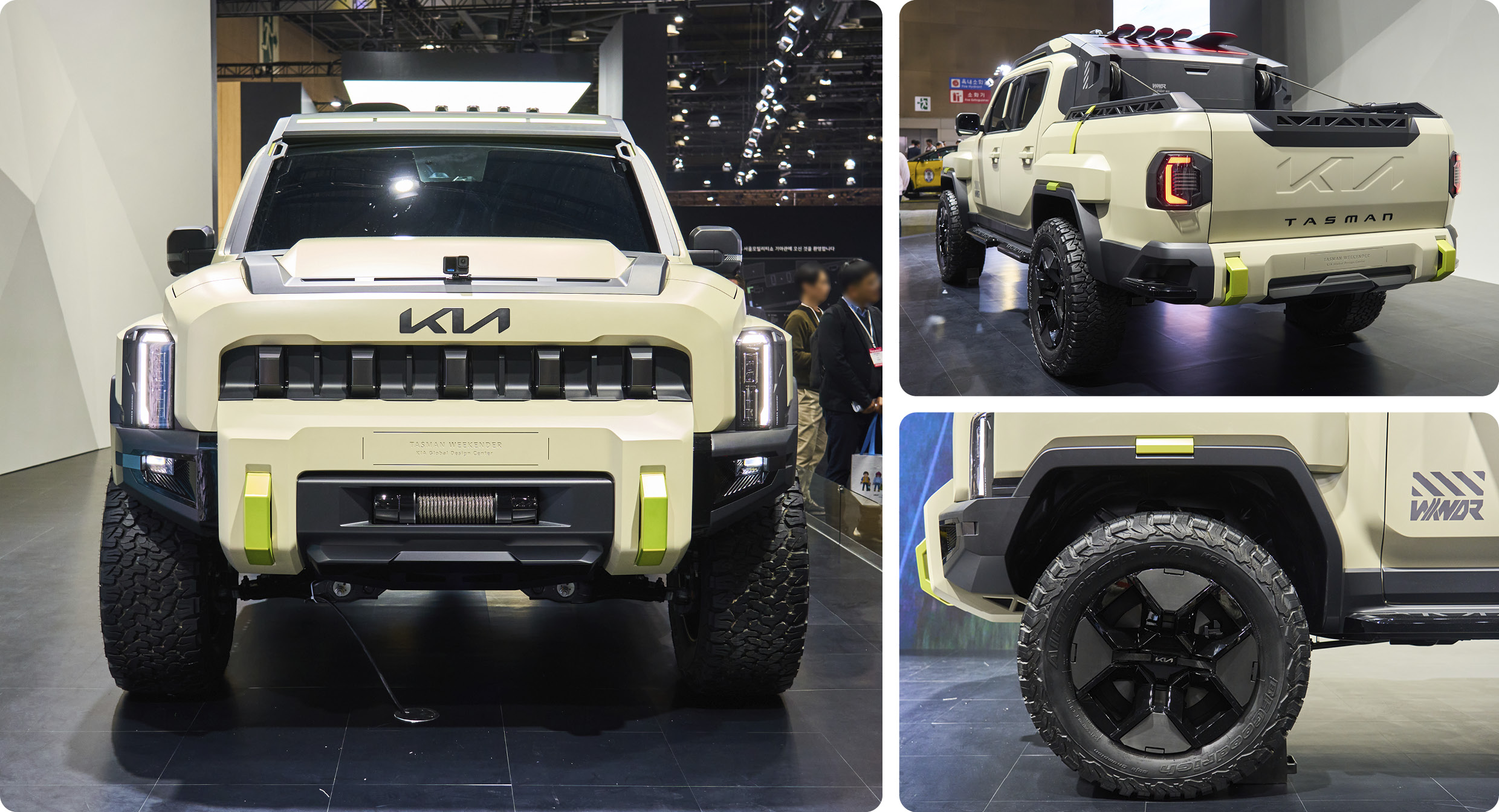
The ‘Tasman Zone,’ themed around Kia’s first authentic pickup, the Tasman, also attracted significant attention. Both the standard model and the off-road-specialized Tasman X-Pro were displayed, providing a space to experience the excellent product qualities of the Tasman across on-and-off-road environments.
Meanwhile, the concept car ‘Tasman WKNDR’ also received enthusiastic responses from visitors. It is equipped with 35-inch tires, body-color-type overfenders, multi-rails, roof baskets, and multi-tool boxes, all optimized for overlanding (automotive travel to remote areas to enjoy nature and camping). This model further emphasizes the versatile image of the Tasman, capable of delivering excellent performance in any driving environment.
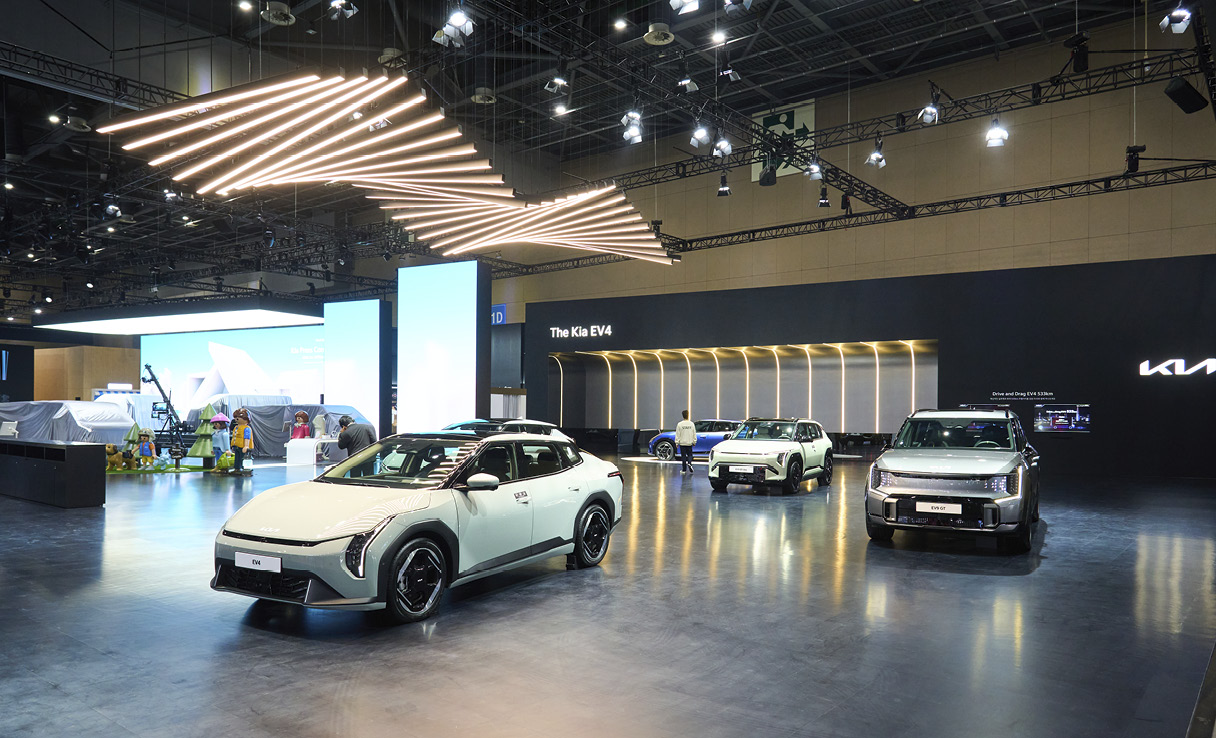
In another section of the exhibition hall, Kia showcased its dedicated electric vehicle lineup, including the EV4 unveiled in February, the EV3 GT Line, and the EV9 GT. These models represent the core of Kia's current offerings. The EV4 was displayed alongside its GT Line variant, fully conveying the appeal of Kia's first electric sedan to visitors.
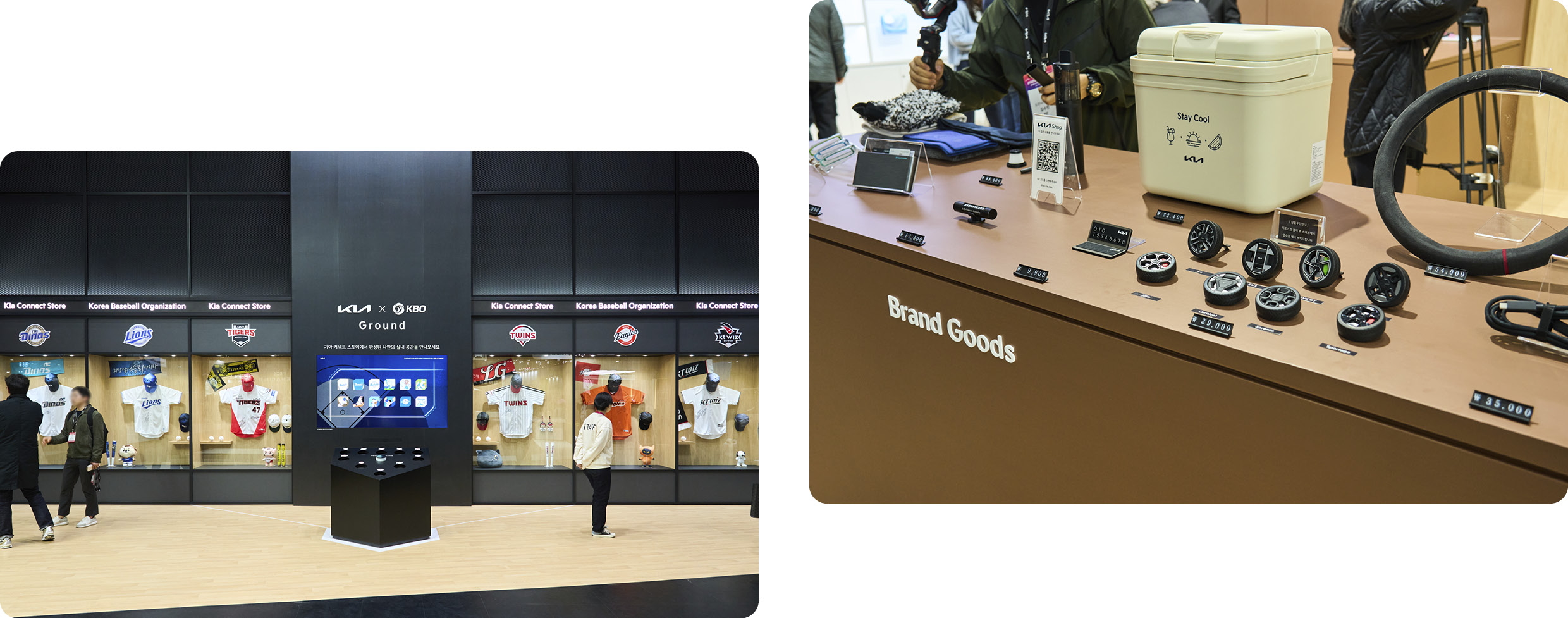
Additionally, a dedicated experience zone for the ‘Kia Connect Store’ was established. Here, visitors could experience the ‘KBO Display Theme,’ which allows changing the color and graphics of the vehicle's infotainment display to match themes of KBO League teams. Furthermore, various accessories and goods developed in collaboration with Playmobil, as well as 1:10 scale models of the Tasman, were exhibited. A stamp tour event encompassing the entire Kia exhibition hall encouraged active participation from visitors.
Under the theme ‘Unfold a New Era of Genesis,’ Genesis used its presence at the 2025 Seoul Mobility Show to mark a decade of the brand and showcase its vision for the future. Through the debut of the X Gran Coupe and X Gran Convertible concept cars, Genesis laid out its next steps in luxury design—while also signaling its bold entry into the world of motorsports.
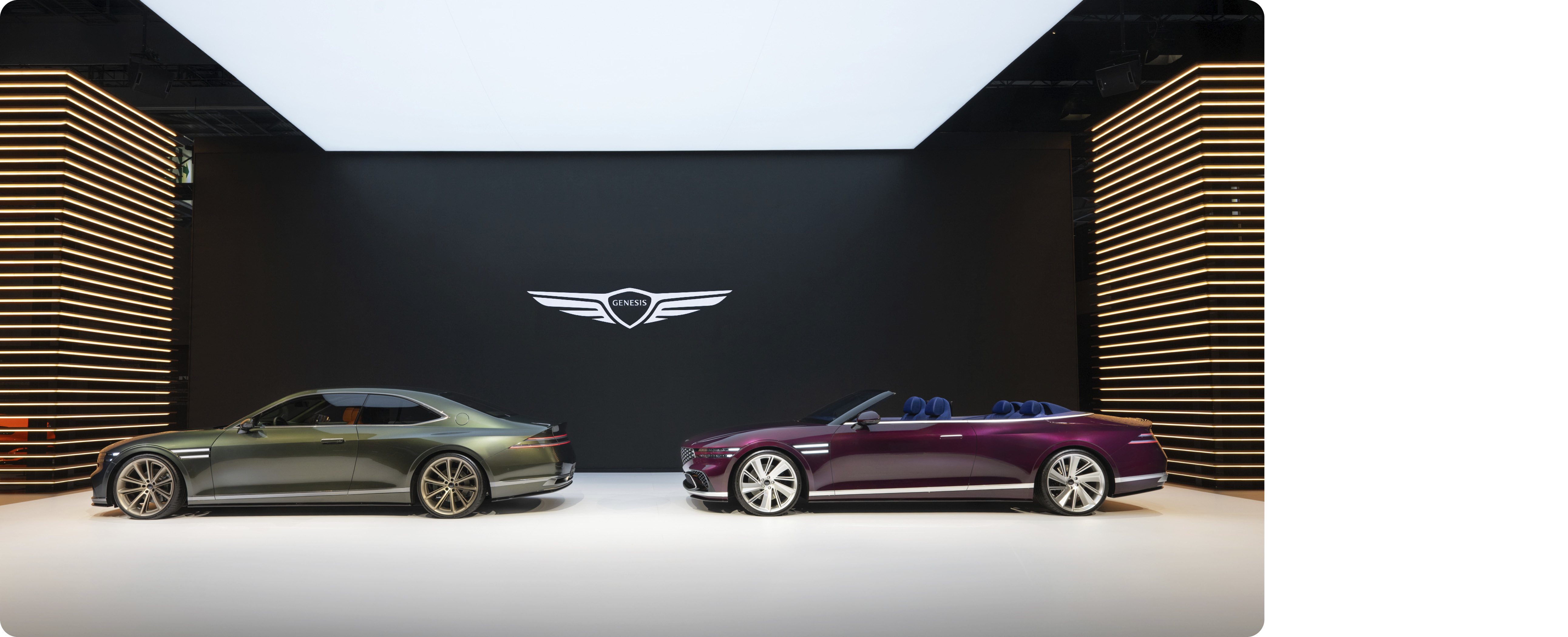
Making their global debut, the X Gran Coupe and X Gran Convertible are concept cars built on the platform of the G90, Genesis’s flagship sedan. Embodying the brand’s ‘Athletic Elegance’ design philosophy, the two models reinterpret the G90’s stately silhouette into sleek, flowing coupe forms while retaining the hallmark dual-line signature lighting front and rear. These cars are not only the culmination of Genesis’s design DNA but also serve as a glimpse into the direction of its future flagships.
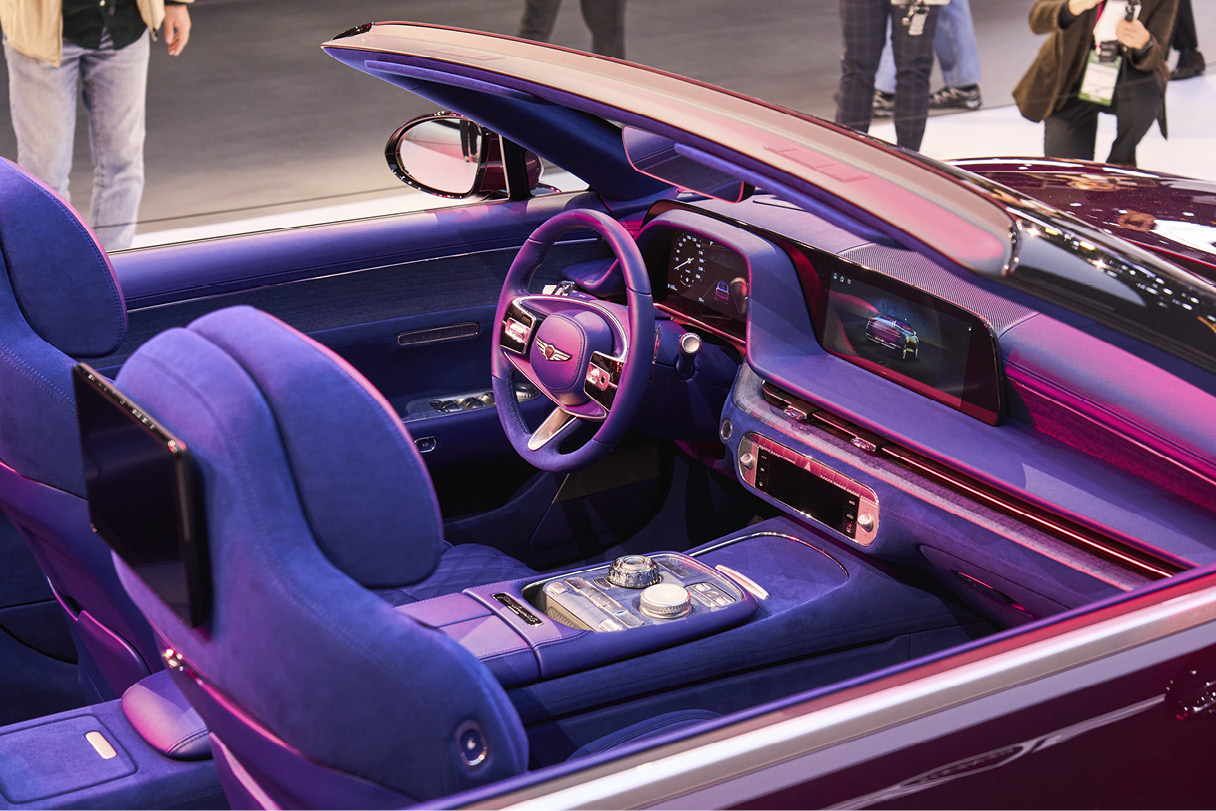
Inside, the vehicles retain the G90’s core layout but with enhanced attention to detail. The previously separated wing-like shapes on either side of the cluster are now joined for a more immersive cockpit feel, while the steering wheel and seats have been refined for both aesthetics and usability. Premium materials—such as crystal inlays, natural leather, olive wood (in the Coupe), and eucalyptus wood (in the Convertible)—enhance the cabin’s upscale ambiance.
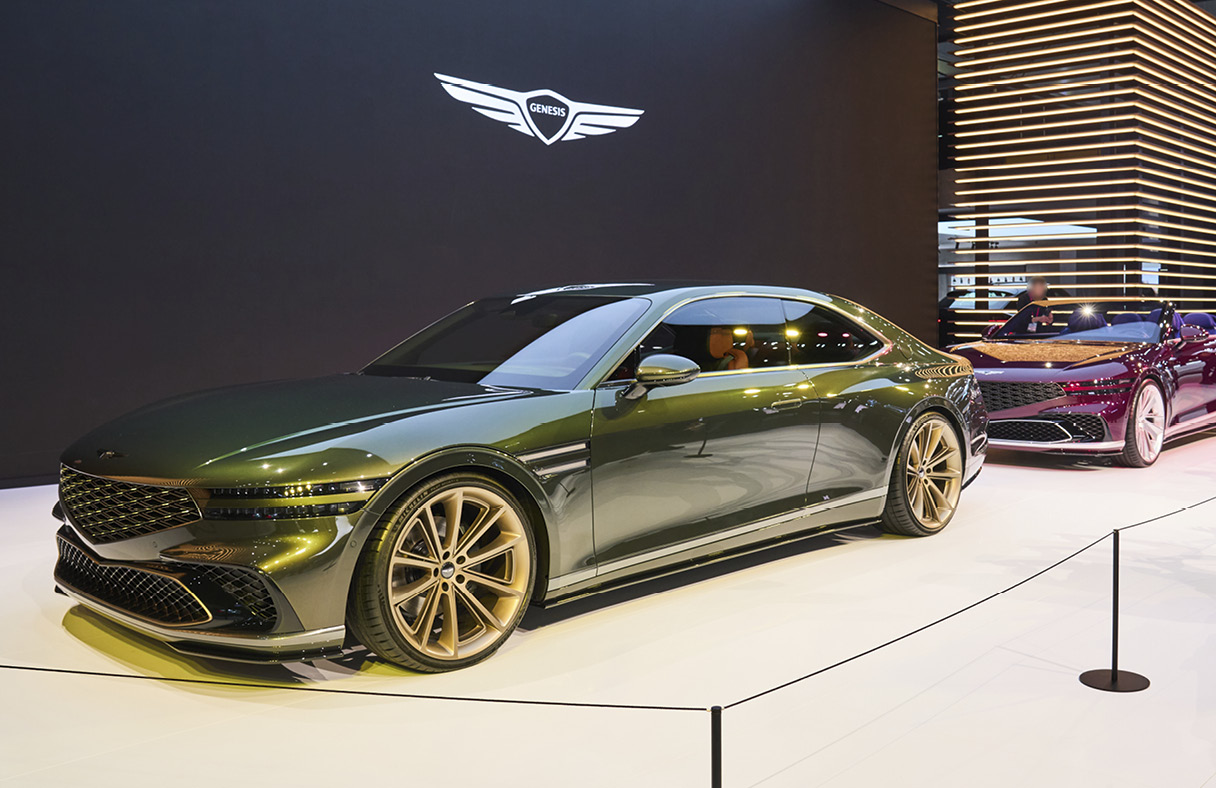
The exterior colors are inspired by the landscapes of the Mediterranean. The X Gran Coupe is painted in a shade of green reminiscent of olive trees, while the X Gran Convertible wears a deep burgundy hue inspired by fine Italian wine. The interior color palettes mirror the exterior tones, offering a sense of unity and delivering a uniquely serene and luxurious experience to passengers.

Another major highlight from Genesis was its official announcement of a motorsports debut. The company revealed the design of its upcoming GMR-001 Hypercar for the first time in Korea and confirmed its participation in global endurance racing. Genesis will enter the World Endurance Championship (WEC) starting in 2026 and the WeatherTech SportsCar Championship (WTSCC) from 2027, cementing its place in top-tier motorsport.
The GMR-001’s design is inspired by the Genesis Magma program. Its sweeping parabolic arch—running from front to rear—optimizes airflow while highlighting the car’s sculpted, athletic volume. The vehicle also features a dramatic black finish and Genesis’s signature dual-line lighting, making its identity unmistakable. Though presented as a 1:2 scale model, its commanding silhouette and immersive media art display delivered a sense of real race-ready intensity.
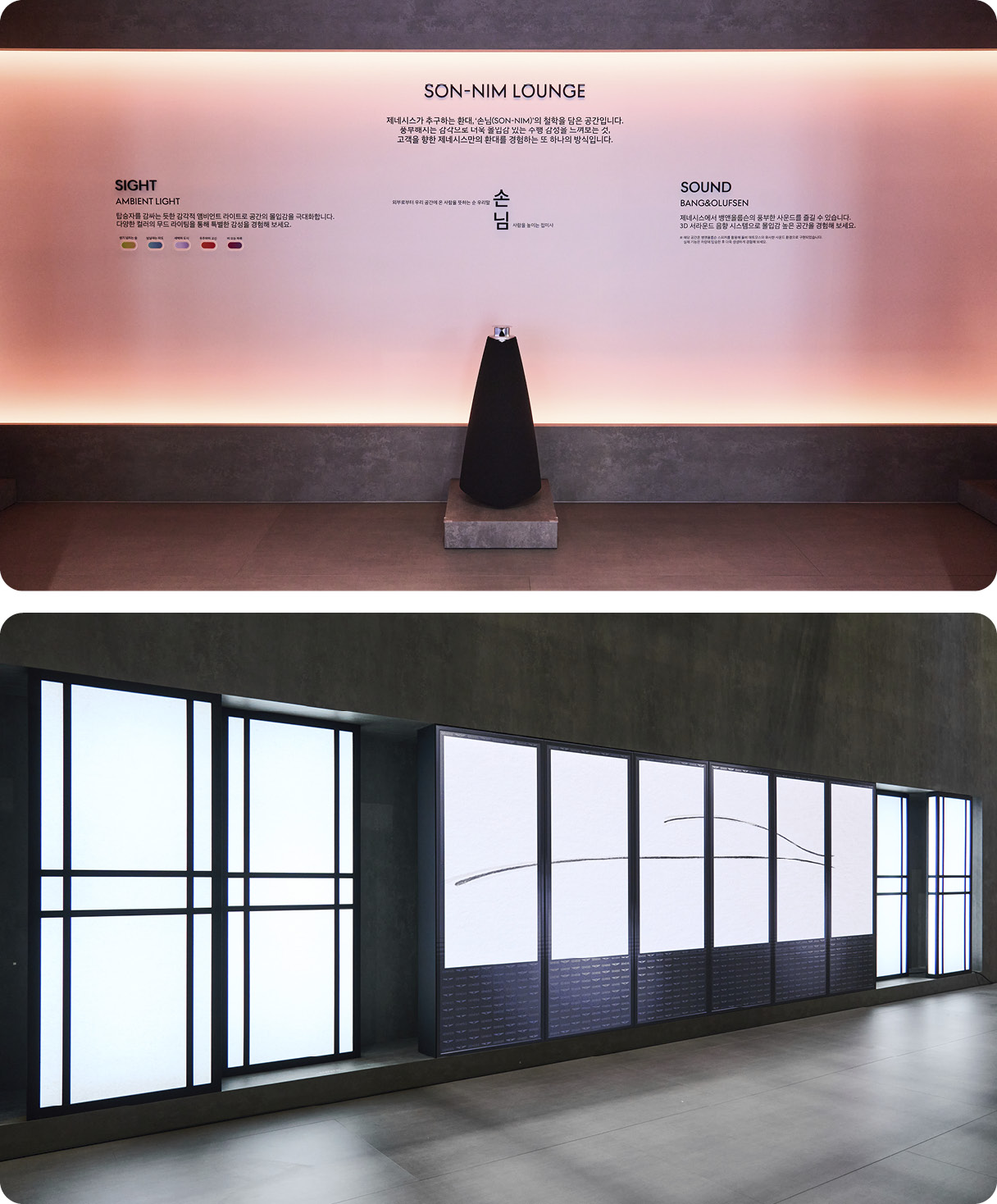
At the rear of the Genesis display stood the ‘SON-NIM Lounge,’ a uniquely Korean take on hospitality. The space featured Bang & Olufsen 3D surround sound, ambient mood lighting, curated fragrance experiences, and tactile luxury materials—allowing guests to engage with Genesis’s hospitality philosophy through all five senses. On the opposite side of the booth, a media wall designed in the shape of a traditional Korean folding screen visually narrated Genesis’s first 10 years and offered a vision of its future through the lens of Korean aesthetics.
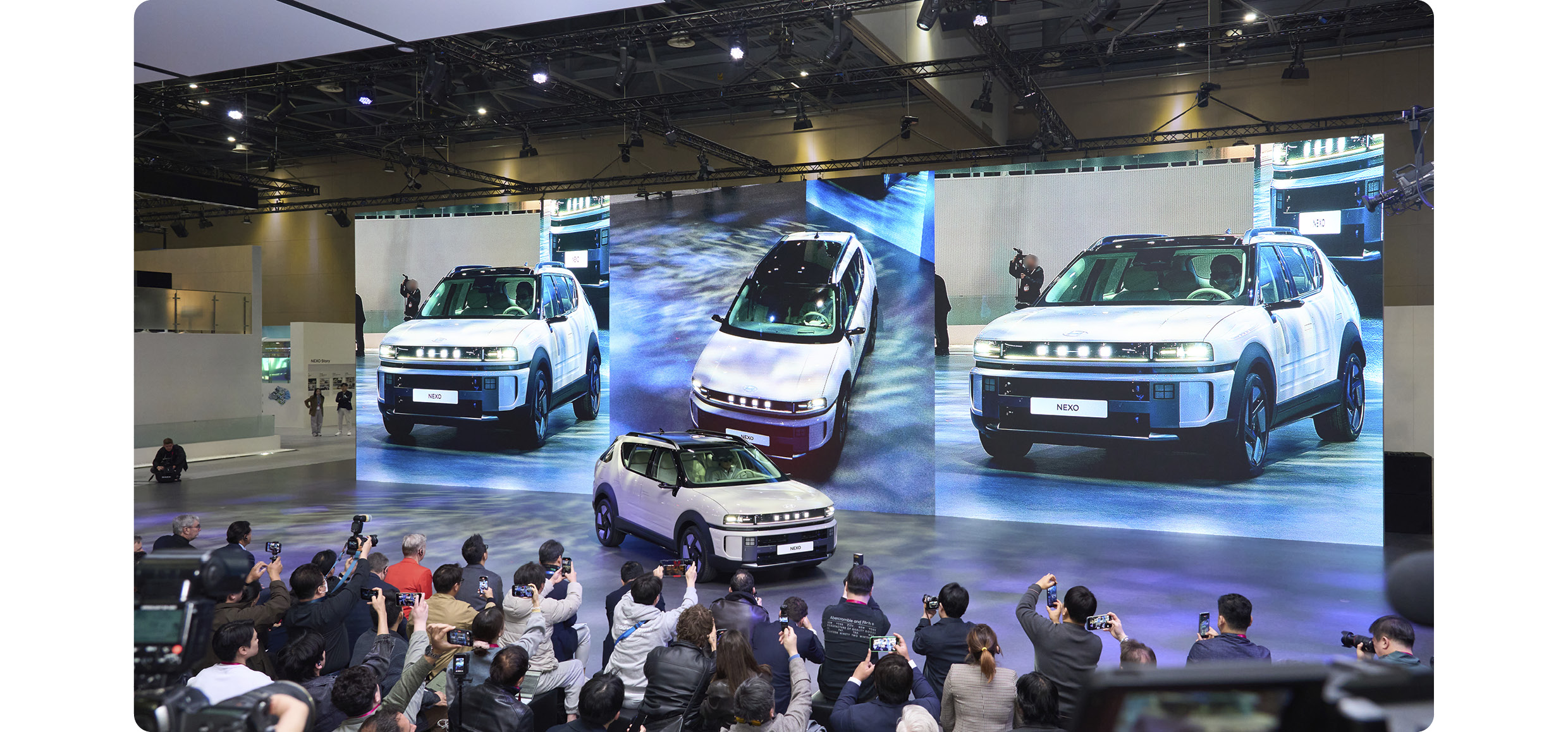
Hyundai Motor Group’s direction at this year’s Seoul Mobility Show was crystal clear. Hyundai demonstrated that sustainability and driving excitement can go hand in hand. Kia showcased its PBV vision as a gateway to evolving and personalized lifestyles. And Genesis unveiled its future as a progressive luxury brand poised for its next leap. The future of mobility envisioned by Hyundai Motor Group promises not only greater comfort and convenience—but also the freedom to express personal values and tastes more distinctly than ever.
Photography by Hyuk-soo Cho